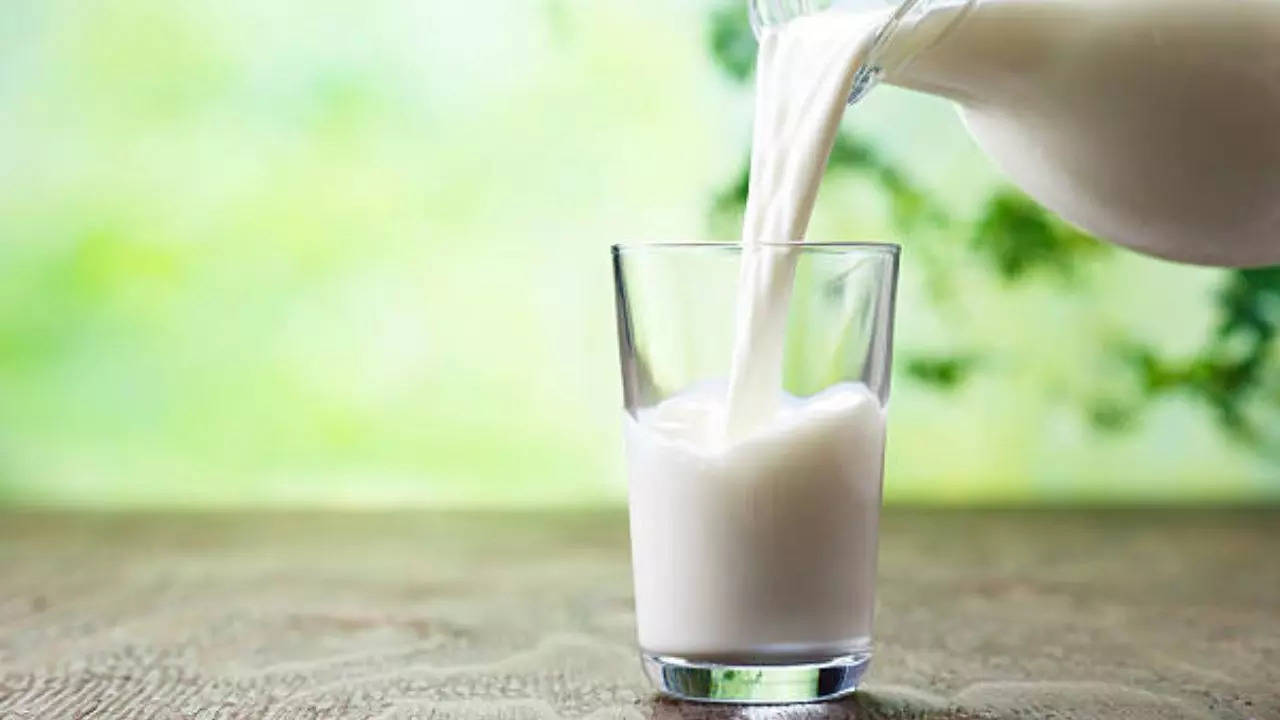-
news
-
Health
Do you think your milk is safe? Flu virus can last for 5 days in raw milk
A Stanford University study showed that influenza viruses can remain infectious for up to five days in refrigerated raw milk, raising concerns about the dangers of consuming unpasteurized milk. Researchers focus on the importance of pasteurization to prevent avian influenza transmission, especially during bird flu outbreaks.

Do you think your milk is safe? Flu virus can last for 5 days in raw milk (Image credit: iStock)
According to a recent study from Stanford University, influenza viruses can remain infectious for up to five days in refrigerated raw milk. This raises concerns about the potential dangers of consuming unpasteurized milk, especially as bird flu outbreaks in livestock are increasing globally.
The study, led by researchers at the Stanford Doerr School of Sustainability and the Stanford School of Engineering, shows the importance of pasteurization for preventing the transmission of avian influenza and other pathogens. “This work highlights the potential risk of avian influenza transmission through raw milk consumption and the important role of milk pasteurization,” said senior author Alexandria Boehm.
Proponents of raw milk argue that it retains more nutrients, enzymes, and probiotics than pasteurized milk, which they believe benefits immune and gastrointestinal health. However, the US Food and Drug Administration (FDA) has issued a strong warning against the consumption of raw milk and has linked it to over 200 diseases caused by bacteria such as E. coli and Salmonella. These pathogens pose significant health risks, especially to vulnerable groups such as children, the elderly, pregnant women, and individuals with weakened immune systems.
The research, published in Environmental Science & Technology Letters, examined how a strain of human influenza virus, H1N1 PR8, behaves in raw cow’s milk stored at specific refrigeration temperatures. The virus survived in milk for up to five days and remained infectious during that period.
“The presence of infectious influenza viruses in raw milk raises concerns about potential transmission routes,” said co-lead author Mengyang Zhang, a postdoctoral scholar in civil and environmental engineering. The virus can also contaminate surfaces and materials within dairy facilities, increasing the risk to both animals and humans.
Interestingly, while pasteurization eliminated infectious influenza virus in milk and reduced the presence of viral RNA by approximately 90 percent, the RNA remained detectable for at least 57 days. Although viral RNA is not infectious, its presence indicates the possibility of contamination.
These findings emphasize the need for stronger surveillance systems, especially when bird flu is spreading among livestock. Researchers advocate for strict safety measures in dairy production to reduce the risks associated with raw milk consumption.
As Dr. Boehm said, “Pasteurization is an important safeguard against the transmission of infectious diseases through milk products.”
How to Safely Kill Bacteria in Raw Milk
Raw milk may contain harmful bacteria like E.coli, Salmonella and Listeria, which pose serious health risks. Pasteurization is the most effective method for making raw milk safe for consumption. Here’s how you can do it at home:
– Heat the milk:
Pour the raw milk into a clean, heavy-bottomed vessel. Heat it slowly over medium heat until it reaches 161 degrees F (72 degrees C). Use a food thermometer to accurately monitor the temperature.
– Maintain Temperature:
Once the milk reaches 161 degrees Fahrenheit, maintain this temperature for at least 15 seconds. This step ensures the destruction of harmful pathogens while retaining most of the nutritional value of the milk.
– Cool milk quickly:
Remove the pot from the heat and pour the milk into a sterilized container. Place the container in an ice bath to rapidly cool it to 40 °F (4 °C) or lower.
– Store Properly:
Store pasteurized milk immediately in a sealed container in the refrigerator. Consume it within a week for best quality and safety.
Get the latest news live on Times Now with breaking news and top headlines from around the world.

